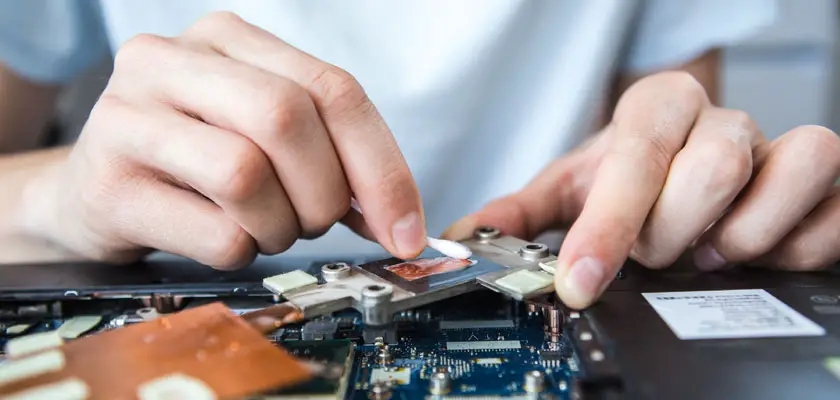Did you know that the IT industry in India was worth $177 billion in 2019? This was revealed by Indian Brand Equity Foundation. The industry is growing at around 6.1% year on year and is expected to reach a value of $350 billion by 2025. But, an important part of India’s booming IT industry is hardware and networking. Hardware and networking professionals are what keep all the systems working efficiently in the IT industry.
What is Computer Hardware and Networking?
As the name suggests, there are two main parts: computer and networking. In the hardware part, the professional maintains and troubleshoots various physical components of a computer system, such as the motherboard, chipset, monitor, internal storage and keyboard.
The networking part deals with the connection of two or more systems, for sharing and transmission of data. On a small scale, networking could involve connecting a computer with a printer, keyboard and mouse. On the other hand, the job could also involve interconnecting a very large set of computers with one another and with the database servers. The professionals who are responsible for all this are known as hardware networking engineers. A great way to learn these skills is with the help of an online networking course.
In addition, networking professionals also need to know how to up set up a computer network, using LAN, NIC or ethernet card. Other networking devices you will learn about in the course are routers, gateways, network bridges, line drivers, hubs and repeaters. The professionals also look after the installation of systems.
What are the Educational Requirements for a Hardware and Networking Course?
There is great flexibility regarding when you can pursue this course. Whether you have just completed high school or graduation, you can apply for these courses. But enrolling for a hardware and networking course after graduation provides better career opportunities.
Some of the requirements for admission in the course after graduation are:
- You should have completed Class 12 and graduation with minimum 50% marks in each.
- You should be able to interact in English to a certain degree.
- You need to be comfortable operating a Windows system.
- There are certain courses for which only electrical and electronics engineers are eligible, although a bachelor's degree is sufficient in most cases.
What are the Skills Required to Become a Hardware and Networking Professional?
Hardware and networking professionals nee to possess creative and analytical abilities. In this field, you will be required to constantly look for design flaws and inconsistencies. Having programming skills and knowledge of electronic circuits can be greatly beneficial as well. Completing a networking course is a great way of acquiring these skills.
What are the Benefits of Pursuing a Career in Hardware and Networking?
One of the biggest reasons to go for a career in hardware and networking is the number of job opportunities available. Your employment opportunities are not just limited to IT companies, you can get jobs in almost every sector, including hospitals, the film industry, colleges and schools. Wherever there is use of computers, hardware and networking professionals are required.
If you are looking for a career in hardware and networking, you can even consider online networking courses that you can take from the comfort of your home.






